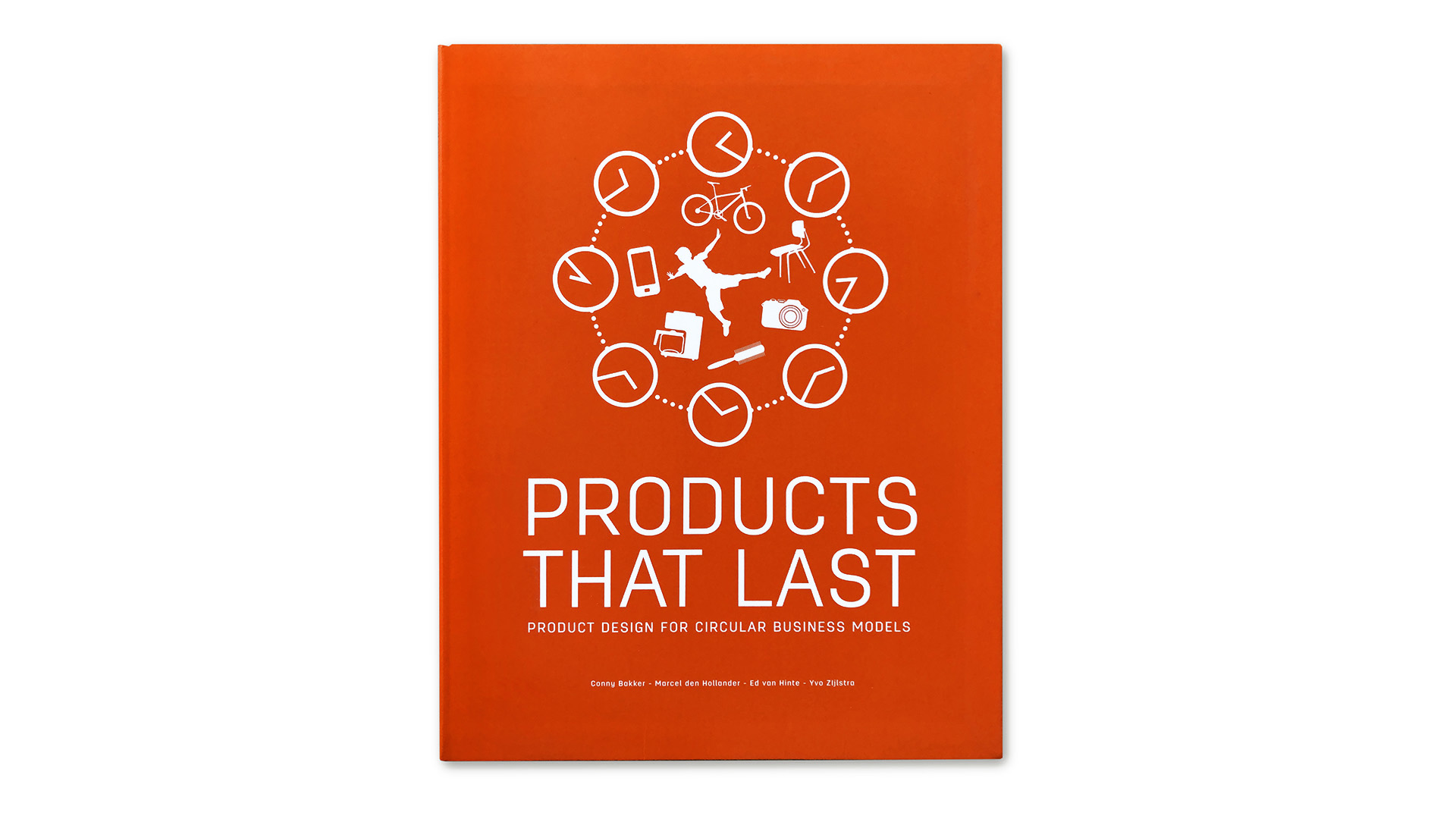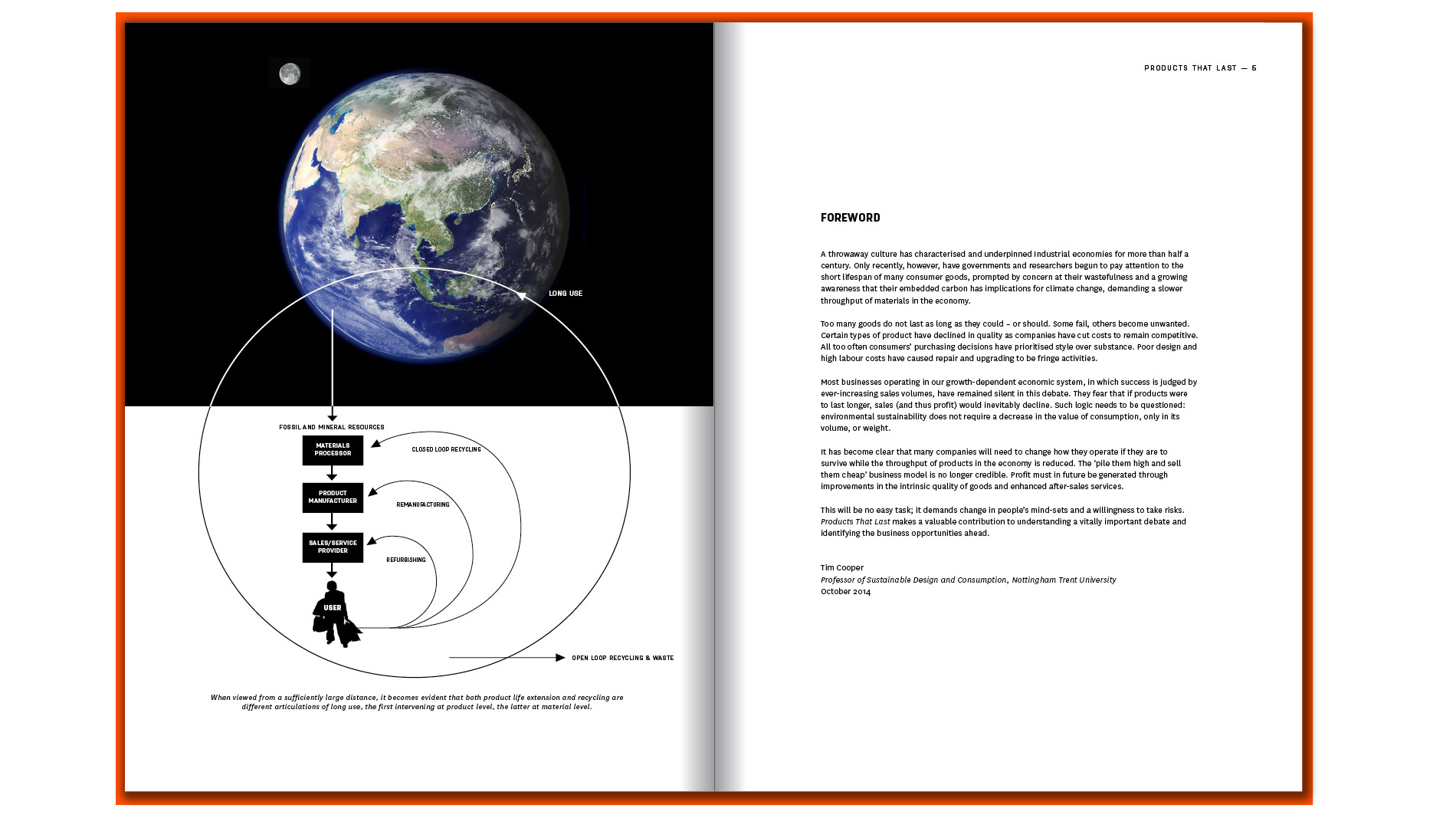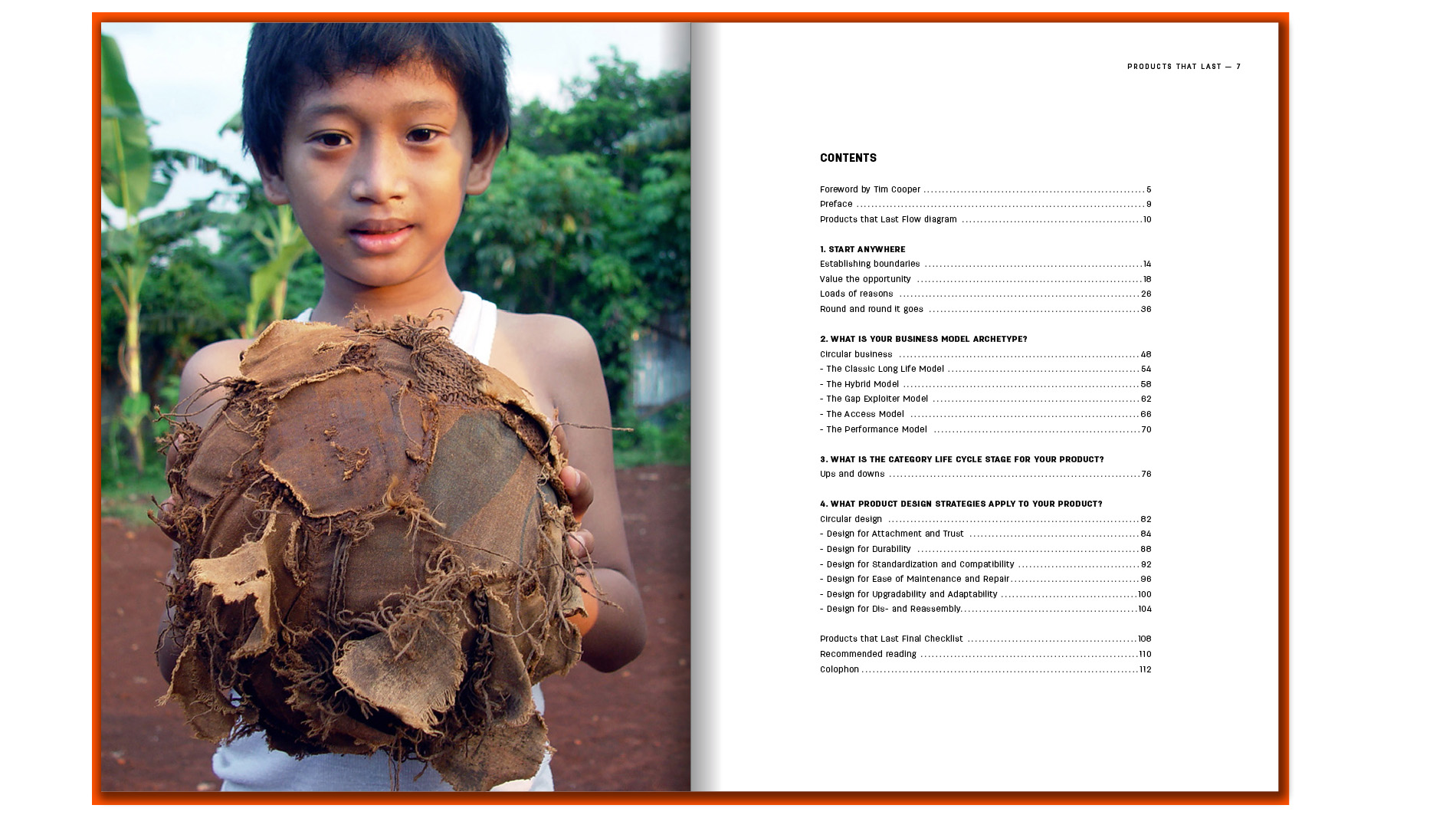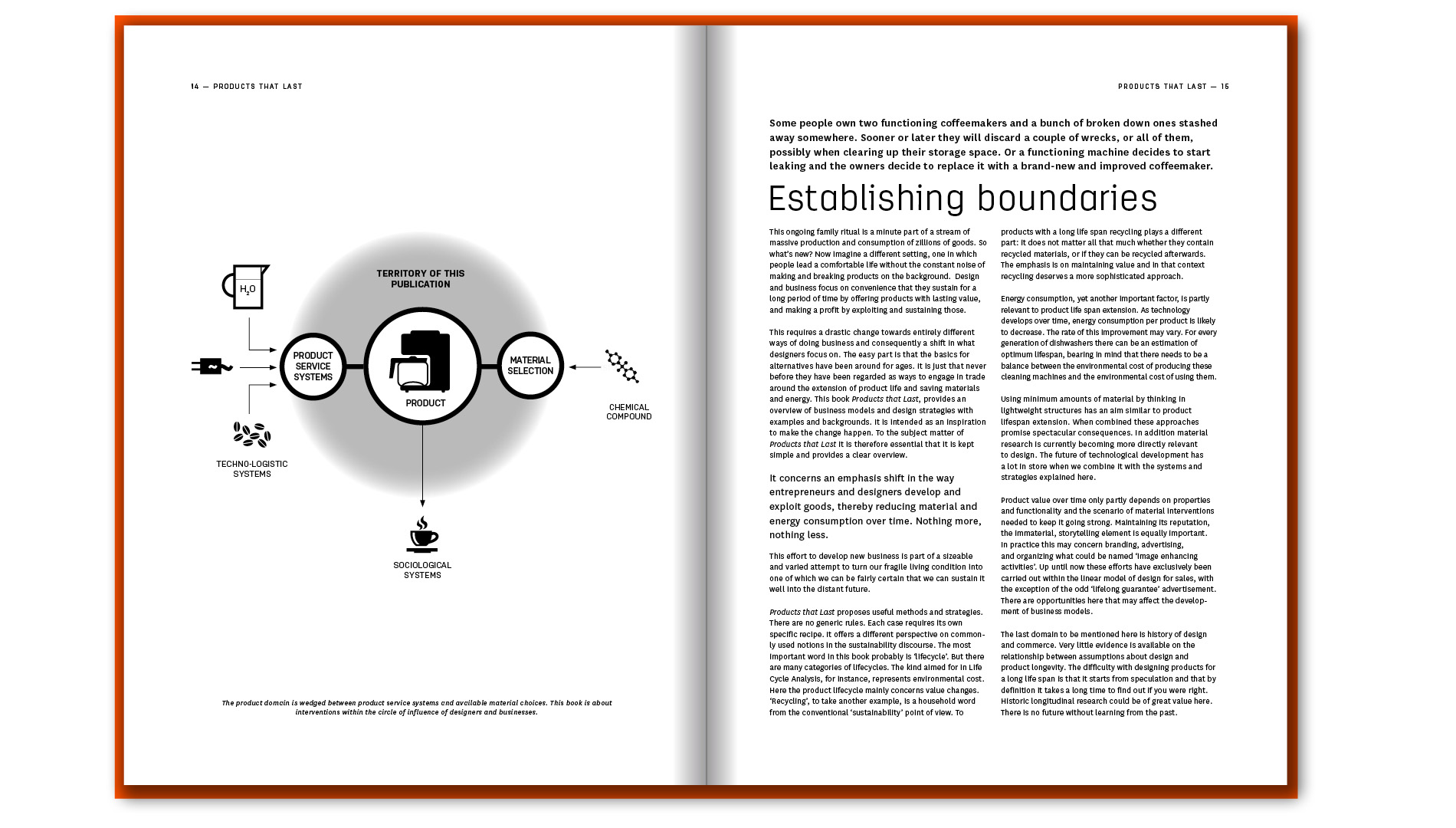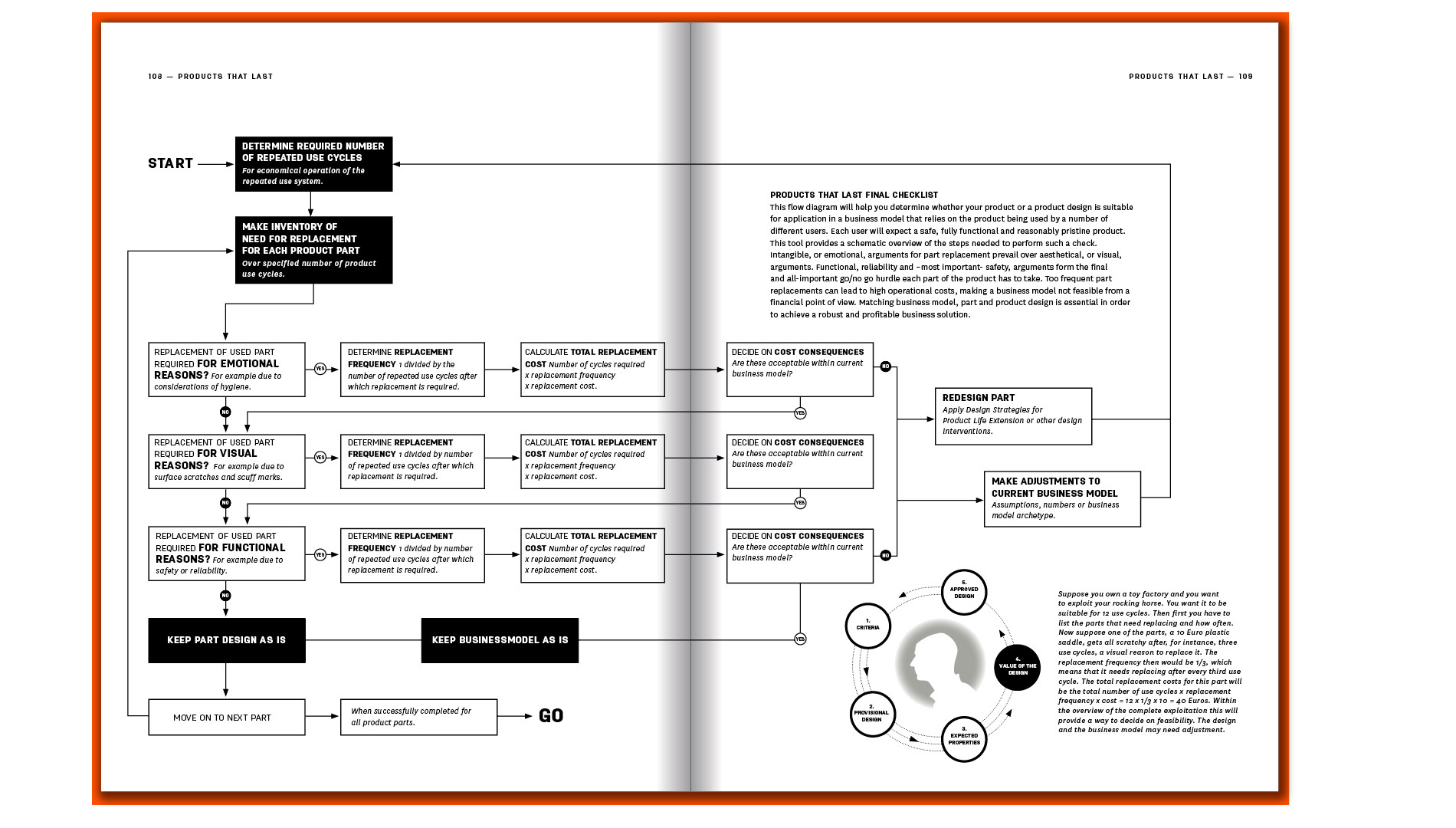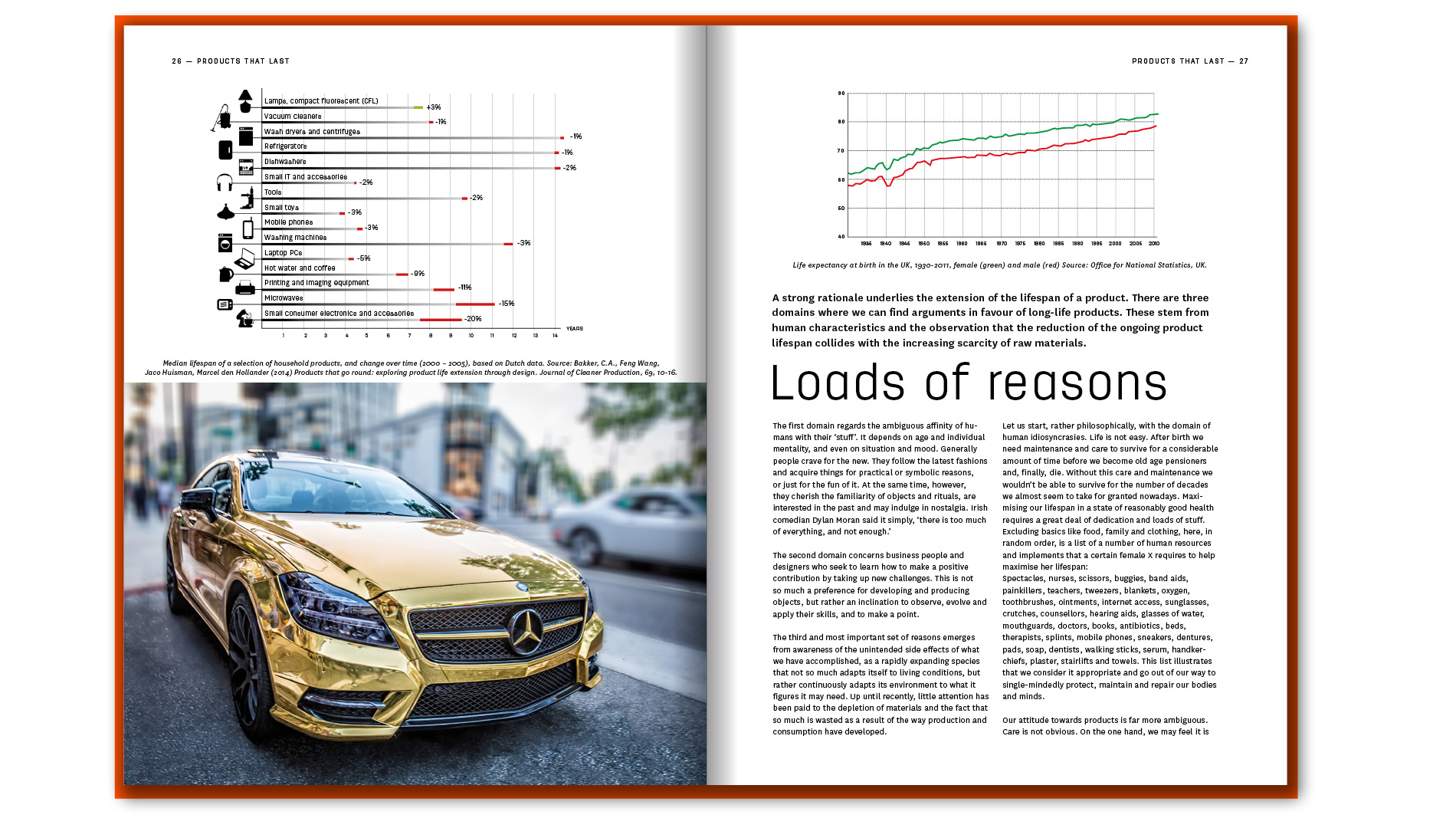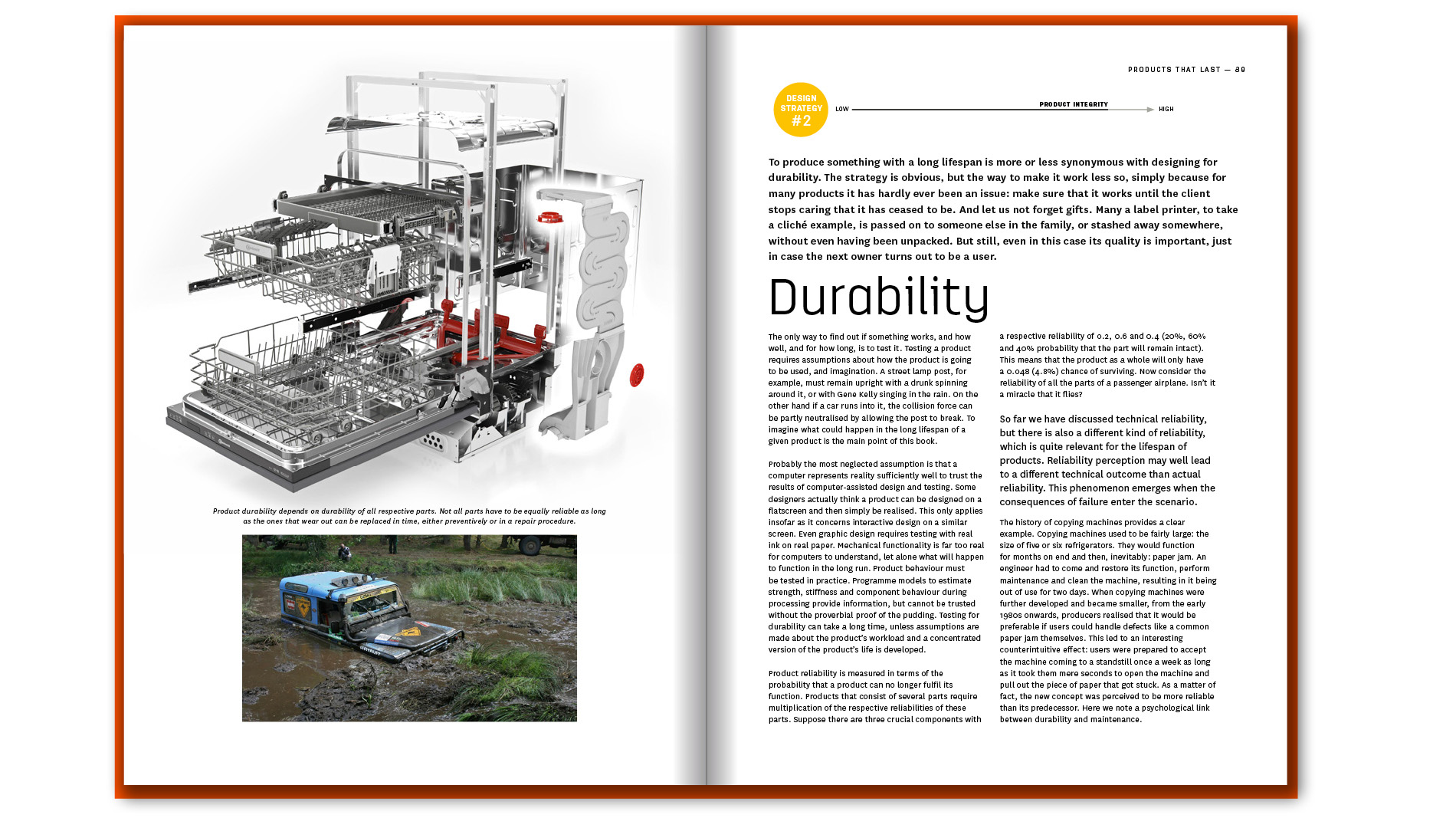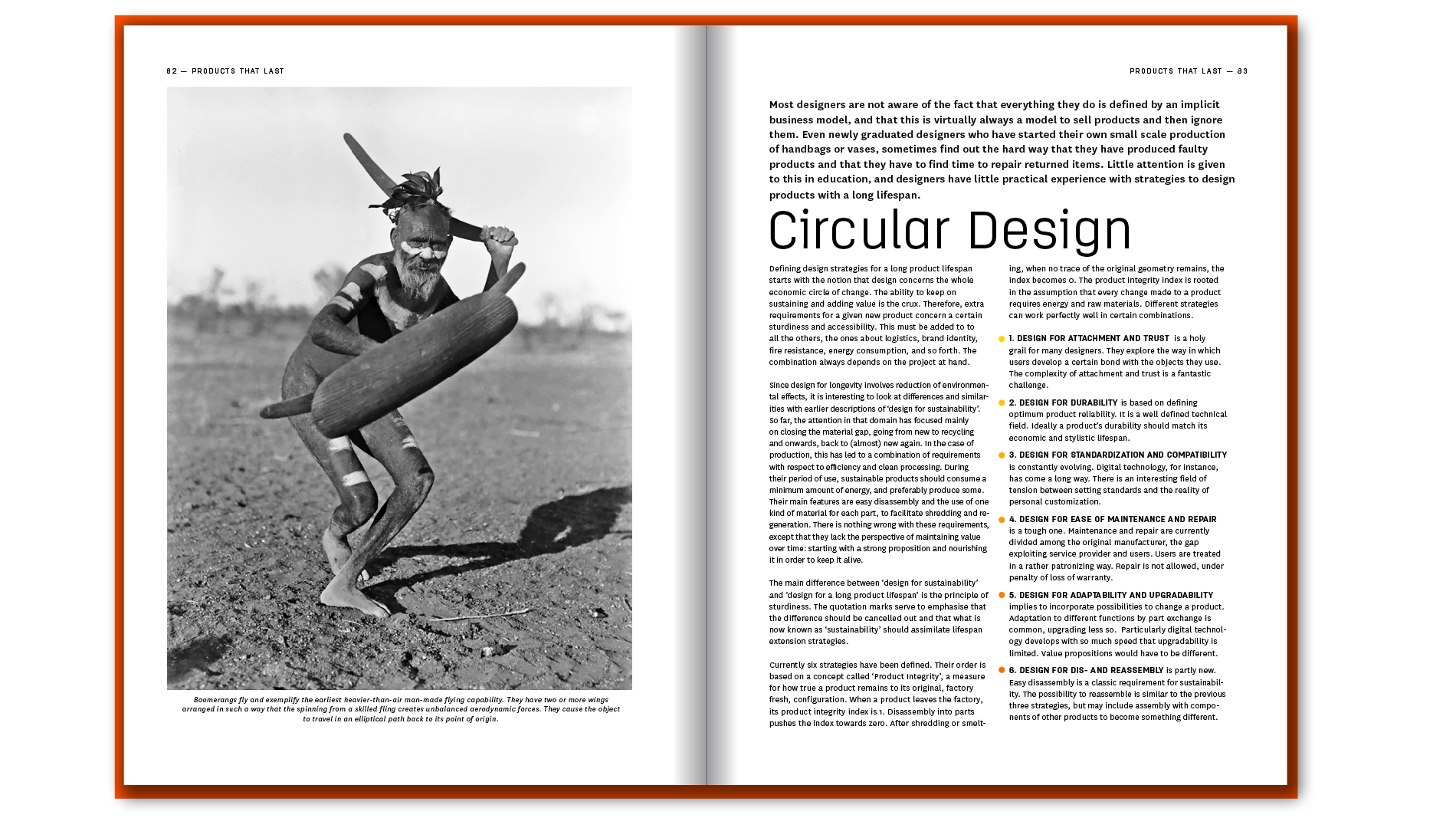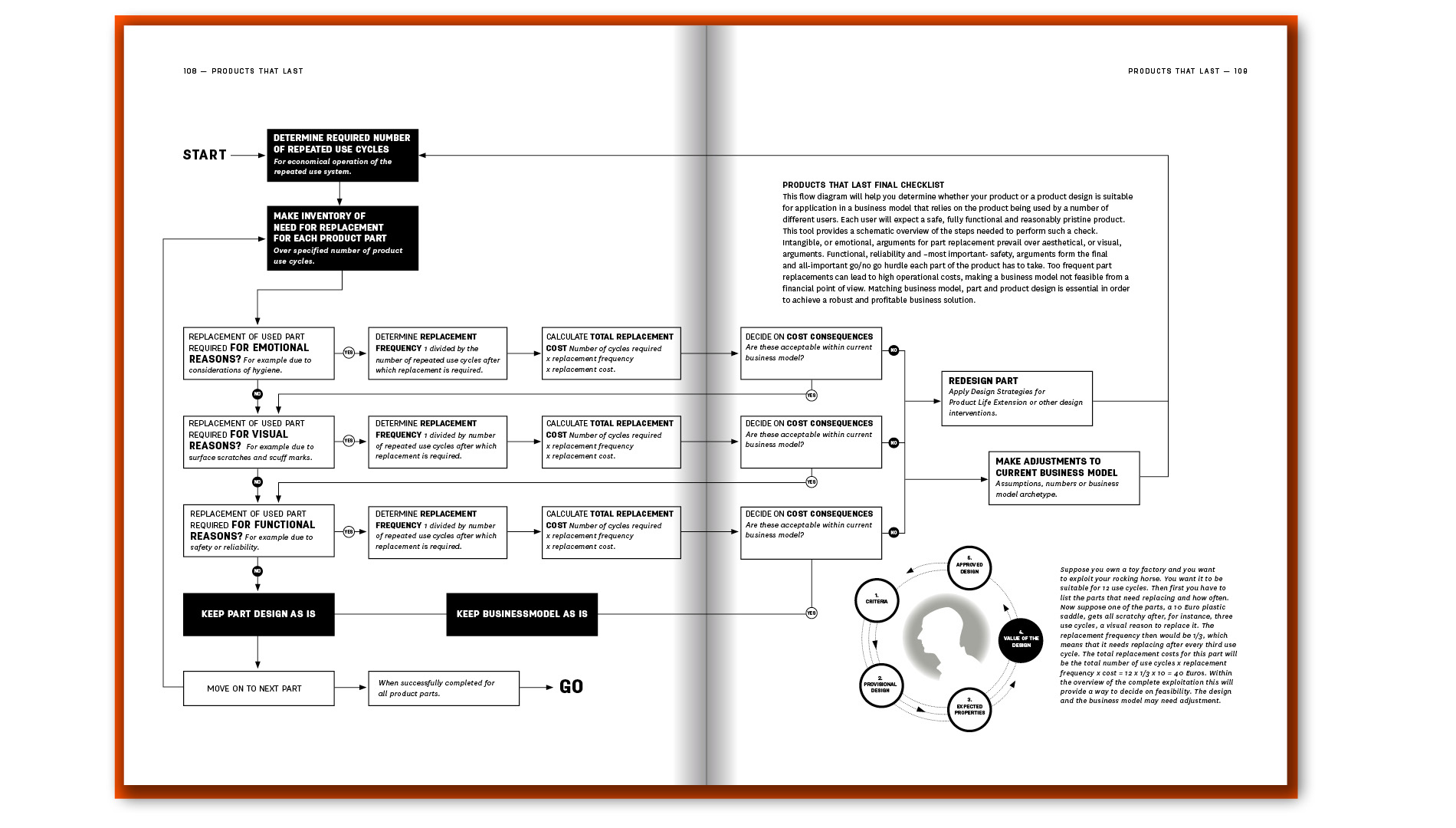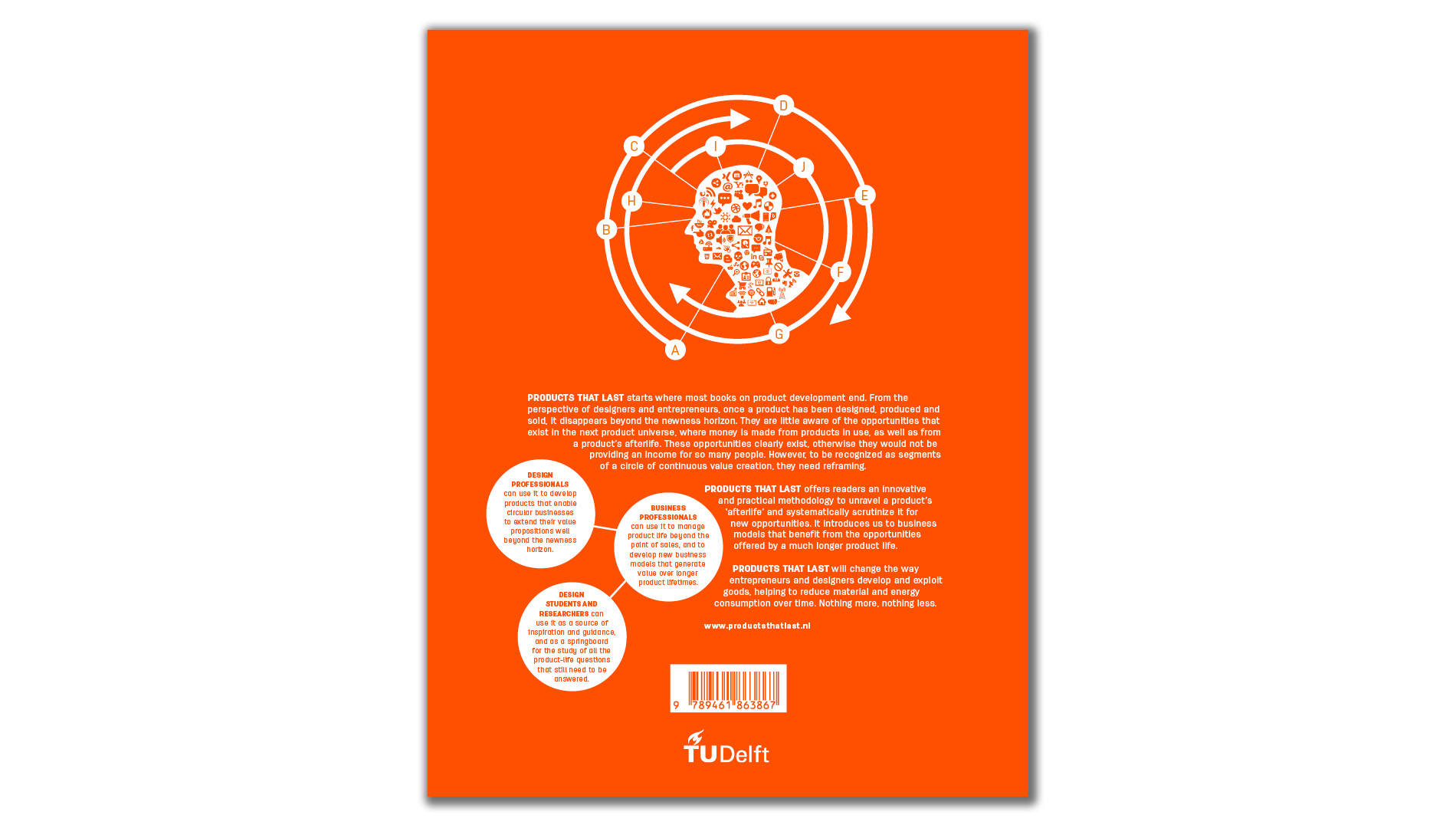Products that Last starts where most books on product development end. From the perspective of designers and entrepreneurs, once a product has been designed, produced and sold, it disappears beyond the newness horizon. They are little aware of the opportunities that exist in the next product universe, where money is made from products in use, as well as from a product’s afterlife. These opportunities clearly exist, otherwise they would not be providing an income for so many people. However, to be recognized as segments of a circle of continuous value creation, they need reframing.
112 pages softcover. ISBN/EAN: 978-94-6186-386-7
Authors: Conny Bakker, Marcel den Hollander, Ed van Hinte, Yvo Zijlstra
